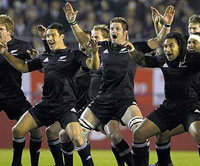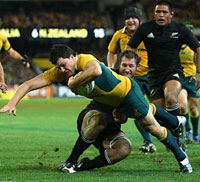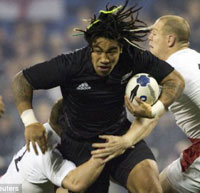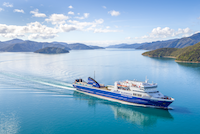Rugby World Cup History
Rugby World Cup Information

Prior to the Rugby World Cup, there were only regional international rugby union competitions. One of the largest and oldest is the Six Nations Championship, which started in 1883 as the "Home Nations" championship, a tournament between England, Ireland, Scotland and Wales. It became the Five Nations in 1910, when France joined the tournament. France did not participate from 1931 to 1939, during which period it reverted back to a Home Nations championship. In 2000, Italy joined the competition, which became the Six Nations.
In the southern hemisphere, the equivalent competition is the Tri Nations series held between Australia, New Zealand, and South Africa.
Rugby union was also played at the Summer Olympics, first appearing at the 1900 Paris games and subsequently at London in 1908, Antwerp in 1920, and Paris again in 1924. France won the first gold medal, then Australasia, with the last two being won by the United States. However rugby union was soon removed from the Summer Olympic program.

The idea of a Rugby World Cup had been suggested on numerous occasions going back to the 1950s, but met with opposition from most unions in the IRFB. The idea resurfaced in the early 1980s, with the Australian Rugby Union (ARU) and the New Zealand Rugby Union (NZRU) independently writing to the IRFB seeking to conduct a World Cup tournament.
In 1985, Australia, New Zealand and France were in favour of a world cup and, despite knowing that the international sports boycott on their apartheid regime would prevent their participation, the South African delegates also voted in favour, which was vital in tying the vote 8-8. When one English delegate followed by a Welsh delegate switched sides, by 10 votes to 6 the IRFB finally approved the inaugural cup, jointly hosted by Australia and New Zealand in May and June 1987.
The inaugural tournament was contested in Australia and New Zealand between sixteen nations. The All Blacks (New Zealand) became the first ever champions, defeating France twenty-nine points to nine. The subsequent 1991 tournament was hosted by England, with matches also being played throughout the rest of Britain, Ireland and France. This tournament also saw the abolition of invitation qualification-with a qualifying tournament being introduced which involved thirty-five nations. Australia won the second tournament, defeating England, twelve points to six.
The 1995 tournament was hosted by South Africa, which had originally tied the vote that eventually saw the first event take place. The tournament was the first that South Africa would actually play in, following the end of the international sports boycott. The tournament had a fairytale ending, as South Africa were crowned champions over the All Blacks, which concluded with then President Nelson Mandela, wearing a Springbok jersey and matching baseball cap, presenting the trophy to the South Africa's captain Francois Pienaar.

The tournament in 1999 was hosted by Wales with matches also being held throughout the rest of the United Kingdom, Ireland and France. The tournament included a repecharge system, alongside specific regional qualifying places, and an increase from sixteen to twenty participating nations. Australia claimed their second title, defeating France in the final. The 2003 event was hosted by Australia; although it was originally intended to be held jointly with New Zealand. England emerged as champions defeating Australia in extra time. England's win was unique in that it broke the Southern hemisphere's domination of the event. Such was the celebration of England's victory, that an estimated 750,000 people gathered in central London to greet the team, making the day the largest sporting celebration of its kind ever in the United Kingdom.
The 2007 competition was hosted by France, with matches also being held in Wales and Scotland. South Africa claimed their second title by defeating defending champions England fifteen points to six. The 2011 tournament was awarded to New Zealand in November 2005, ahead of bids from Japan and South Africa.
Rugby World Cup Results
| Year | Host | Final | Third place match | ||||||
|---|---|---|---|---|---|---|---|---|---|
| Winner | Score | Runner-up | 3rd place | Score | 4th place | ||||
| 1987 |
Australia & NZ |
NZ |
29–9 | France |
Wales |
22–21 | Australia |
||
| 1991 |
UK, Ireland & France |
Australia |
12–6 | England |
NZ |
13–6 | Scotland |
||
| 1995 |
South Africa | South Africa |
15–12 |
NZ |
France |
19–9 | England |
||
| 1999 |
Wales | Australia |
35–12 | France |
South Africa |
22–18 | NZ |
||
| 2003 |
Australia | England |
20–17 | Australia |
NZ |
40–13 | France |
||
| 2007 |
France | South Africa |
15-6 | England |
Argentina |
34–10 |
|
||
Check out more information about the 2011 Rugby World Cup, its venues and useful information about the locations of each match.
Return to Rugby World Cup information.













